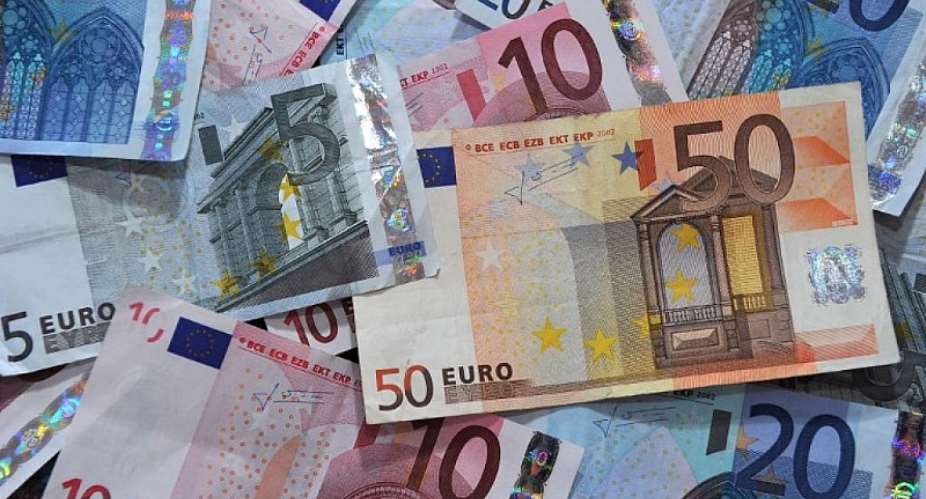The net is closing in on tax cheats, as France is set to use social media in the battle against fraud. The state is set to scour French citizen's Facebook, Instagram and Twitter accounts for details -- and any discrepancies -- about their lifestyle.
French Budget Minister Gérald Darmanin unveiled on Sunday a plan to extend the use of social media in the fight against tax evasion as early as 2019, a policy that is already used successfully in the UK. The goal of the experimental plan will be to identify discrepancies between a citizen's declared revenue and the lifestyle they share on social media.
“(The fiscal administration) will be able to see that if you have numerous pictures of yourself with a luxury car while you don't have the means to own one, then maybe your cousin or your girlfriend has lent it to you, or maybe not,” Darmanin told French business TV show Capital.
Tax evasion cost the French government an estimated €80 billion to €100 billion in 2017, up from €60 to 80 billion in 2013, according to Solidaires Finances Publiques, the largest union representing France's tax authorities.
The measure is part of a new French law passed in October that grants authorities greater freedom to use online data to crackdown on fiscal fraud. The legislation also requires “sharing economy” platforms, such as Airbnb or Uber, to provide tax authorities with their users' earnings, and includes a provision that allows for information to be more easily shared between administrative services for data mining purposes.
Similar initiatives in countries such as the United Kingdom have been met with success. In 2008, Her Majesty's Revenue and Customs (HMRC) launched a computer system known as Connect, which enables tax authorities to collect, analyse and store massive amounts of personal and commercial data that can be cross-referenced with taxpayers' declared income to identify cases of potential fraud. Since its introduction, Connect has generated £3 billion in additional tax revenue.
Satellite imagery can also be used.
Social media, such as Facebook, Twitter, Instagram and LinkedIn have also provided HMRC with a trove of information. The tax authority has even been known to use satellite imagery captured by Google Earth to flag expensive building renovations
The system, however, has its flaws: because authorities are restricted to viewing public social media profiles, nothing can be watched if users make their accounts private. Also at stake is the issue of how accurately can people's life be reflected by posts on social media.
“In reality, there's burden of proof. When it comes to the Internet, (French) jurisprudence is pretty restrictive,” Antoine Colonna D'Istria, an associate at the Paris offices of the global law firm Norton Rose Fulbright, explained.
“Judges are more reticent to admit evidence that comes directly from the Internet. (Social media) users can fantasize, and a photo can be re-touched using software.”
Still, Darmanin hopes that trawling social media accounts will help crack down on growing fiscal fraud in France.





 Former Kotoko Player George Asare elected SRC President at PUG Law Faculty
Former Kotoko Player George Asare elected SRC President at PUG Law Faculty
 2024 elections: Consider ‘dumsor’ when casting your votes; NPP deserves less — P...
2024 elections: Consider ‘dumsor’ when casting your votes; NPP deserves less — P...
 You have no grounds to call Mahama incompetent; you’ve failed — Prof. Marfo blas...
You have no grounds to call Mahama incompetent; you’ve failed — Prof. Marfo blas...
 2024 elections: NPP creates better policies for people like us; we’ll vote for B...
2024 elections: NPP creates better policies for people like us; we’ll vote for B...
 Don’t exchange your life for wealth; a sparkle of fire can be your end — Gender ...
Don’t exchange your life for wealth; a sparkle of fire can be your end — Gender ...
 Ghana’s newly installed Poland train reportedly involved in accident while on a ...
Ghana’s newly installed Poland train reportedly involved in accident while on a ...
 Chieftaincy disputes: Government imposes 4pm to 7am curfew on Sampa township
Chieftaincy disputes: Government imposes 4pm to 7am curfew on Sampa township
 Franklin Cudjoe fumes at unaccountable wasteful executive living large at the ex...
Franklin Cudjoe fumes at unaccountable wasteful executive living large at the ex...
 I'll 'stoop too low' for votes; I'm never moved by your propaganda — Oquaye Jnr ...
I'll 'stoop too low' for votes; I'm never moved by your propaganda — Oquaye Jnr ...
 Kumasi Thermal Plant commissioning: I pray God opens the eyes of leaders who don...
Kumasi Thermal Plant commissioning: I pray God opens the eyes of leaders who don...
